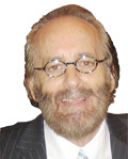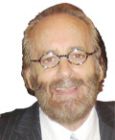Sensation-Seeking
Martin Luther King, Jr., A Hero For All Time
King is looked at against three broad categories of heroism, and the 5-D Model.
Posted January 18, 2013
In the face of the various unheroics of our times, from mass murderers at one level to the Lance Armstrongs and Bernie Madoffs at another,we can celebrate Martin Luther King Jr's, heroism, civility and the non-violent ideal. It's timely to turn to a man who is consistently identified over decades by the American people as a true hero. Martin Luther King, Jr., changed the American social and political fabric in profound ways, in the league of Lincoln, but without Presidential power! In surveys of American heroes he is very frequently in the top group, often with former Presidents Washington, Lincoln, FDR and JFK.
King was a public figure who gave his life for a noble cause, out on the world's stage, inspiring millions, a sophisticated highly educated orator and leader possessing high "public intelligence". He was driven by a single unswerving vision--making civil rights a reality. However, and wherever, he could help that to happen, he did. It was a complex strategy in a complex society driven by a simple idea.
We have heard reams of superlatives about King, but why do we so consistently see him as one of our top heroes? There's a lot of competition for that position in our American and world history, and among those still with us. How does he fare against others we identify as heroes? What kind of hero is he?
I have proposed that there are THREE BROAD CATEGORIES OF HERO: 1) Situational Heroes, 2) Life-Long Heroes, and 3) 911 Heroes. Situational Heroes are those individuals who respond to a specific situation with heroic behavior, and may never be heard from again, e.g., jumping into the river to save the drowning person then disappear into the crowd. Life-Long Heroes are those whose entire life is a testament to heroism, e.g., Martin Luther King, Jr., Gandhi, Mother Teresa. 911 Heroes are those whose very career or occupation frequently requires heroism as a job description, e.g., firefighters, police, EMT personnel, and military. Additionally, I believe the foregoing categories generally reflect what I call Big H Heroism, where much is at stake including sometimes life or death, versus small h heroism, wich is important but the stakes are much lower.
To understand heroism and King better, we might place him in a framework I call the "5-D Model". This concept involves five dimensions in the understanding of heroism. The "Five D's" are:
DETERMINANTS: These are some of the personal qualities or traits we may often look for in our heroes including 1) courage and strength, 2) kind, generous,loving, compassionate, seeks justice, 3) skill, expertise, intelligence, overcomes challenge, 4) honesty, 5) affection (directed toward the hero), 6) risk-taking, adventurous, 7) ambitious, motivated. King meets most, if not all, of these qualities, though honesty might be a problem for some, given his alleged infidelity.I believe that risk-taking and generosity may be particularly important in Big H Heroism, and in Kings life. Note that he risked his life with the things he said and did and was ultimately assassinated for it.
DOMAIN: Many heroes tend to come out of the broad domain of politics and public life, especially those in the Life-Long Heroes category. King meets this characteristic.
DEPTH: How deep is a person's heroism, as shown by how much we feel he/she is like other great heroes. So, do we see King as similar to such great heroes as, for example, Gandhi or Mother Teresa? King does well in such comparisons. This measure also allows us to potentially distinguish celebrity from true heroism, which are often confused.
DISTANCE: Is a hero close to us, such as parents (the quintessential American heroes), or distant from us, such as Lincoln, Washington or Julius Caesar? King is relatively distant for most of us but not the long past, and given the video and audio that is available of him, he remains quite vital and close to many people. Distance here can be temporal or spatial.
DATABASE: How and where do we learn about our heroes? Television, internet, radio, school, books, magazines, etc,. King has been covered in all of these and this has reinforced the sense of his heroic stature.
So to summarize, King shows us many of the traits we often look for in our heroes; he was in the domain from which many heroes arise; he seems to have depth of heroism linking him with other great heroes; he remains relatively close to us in time and depiction; and there is no shortage of information reinforcing his heroism. He was also a Life-Long hero whose life was much defined by his personal determinants. As noted, he meets most of the qualities we often look for. Will he last over time in the pantheon of great American heroes? I believe yes, better than most names that arise in our discussions of American heroes, and perhaps particularly because of the Depth factor and the Determinants.


